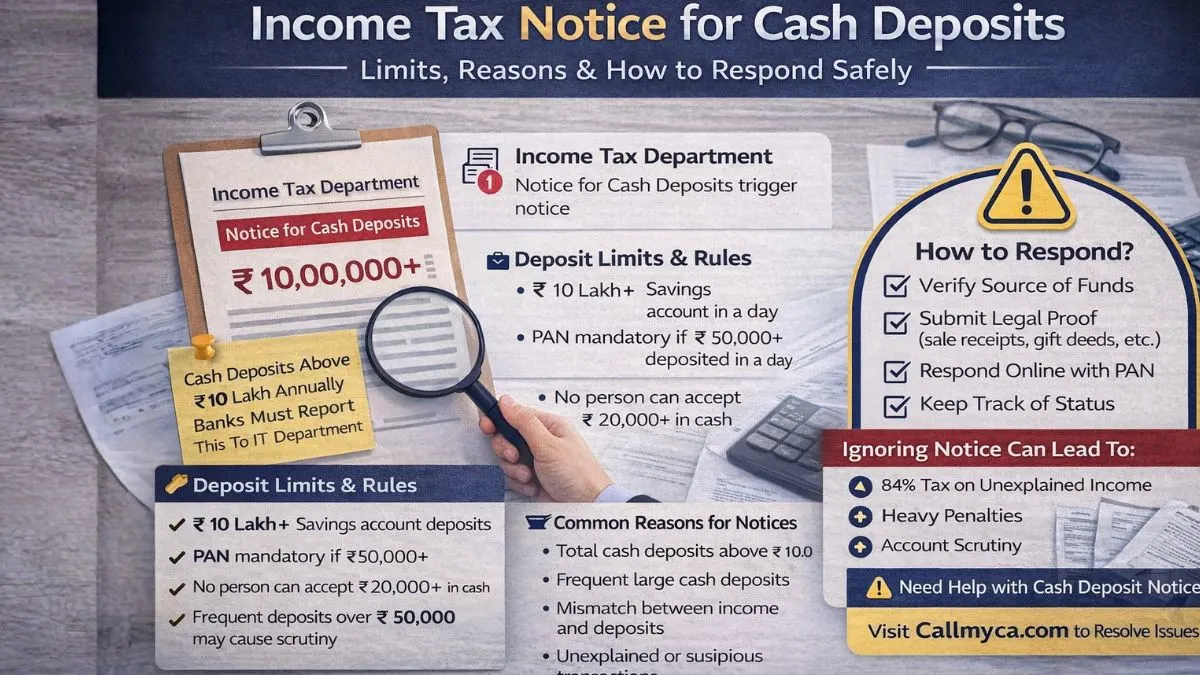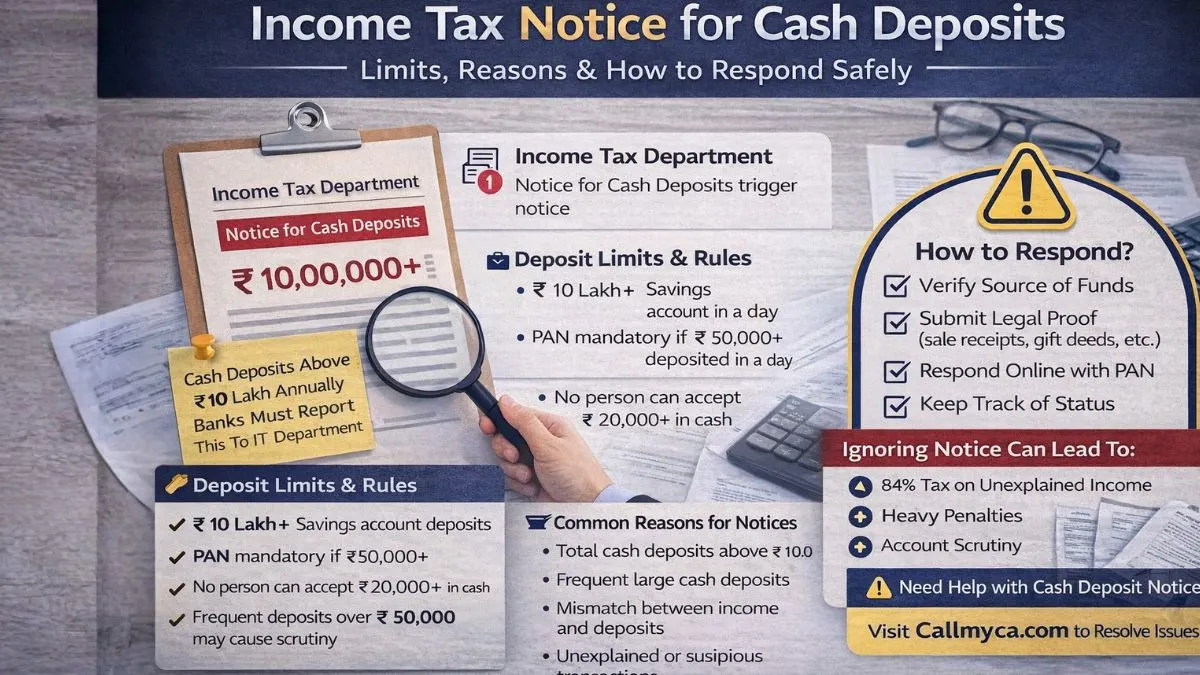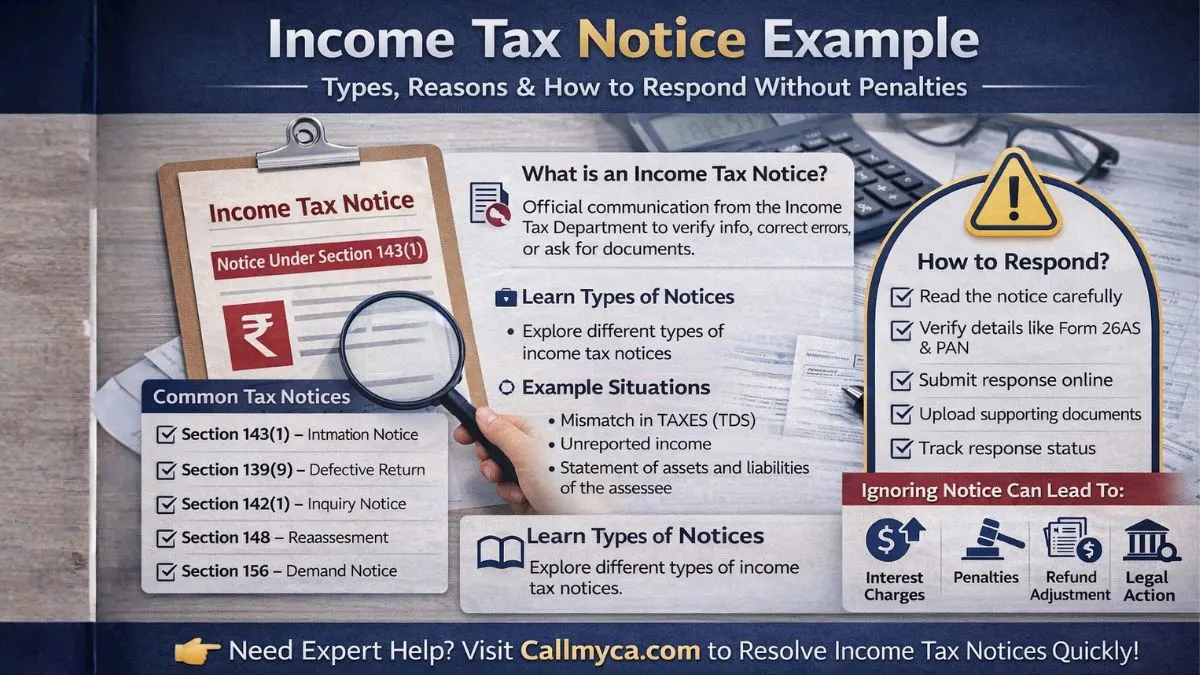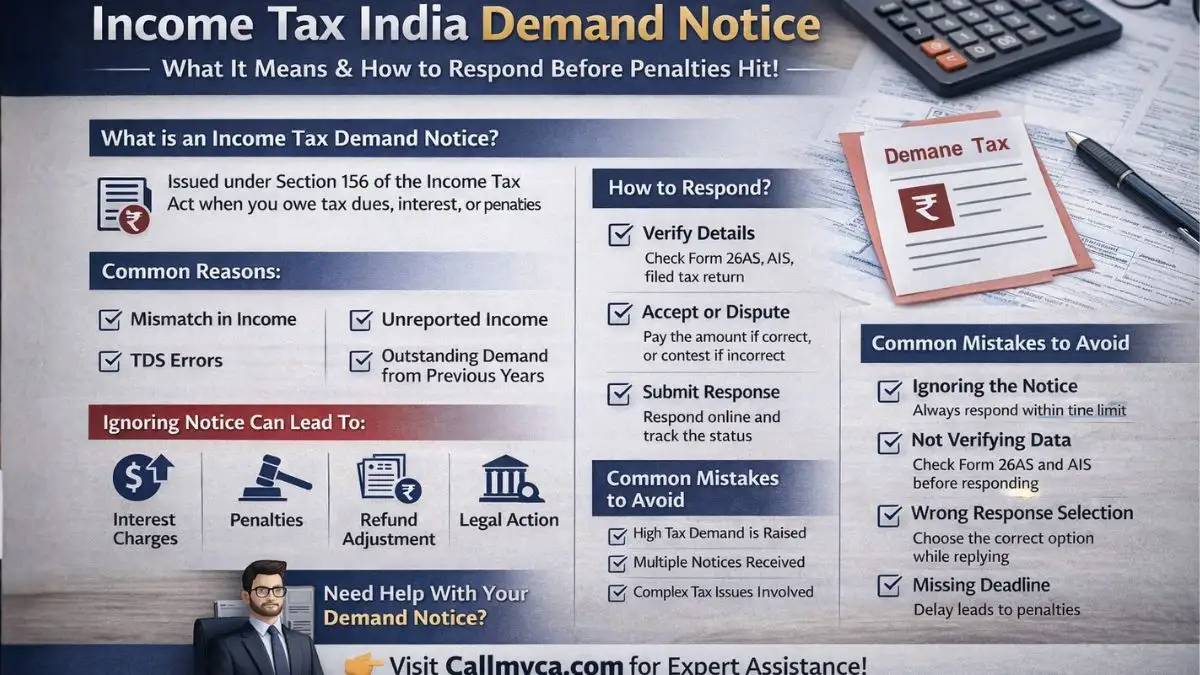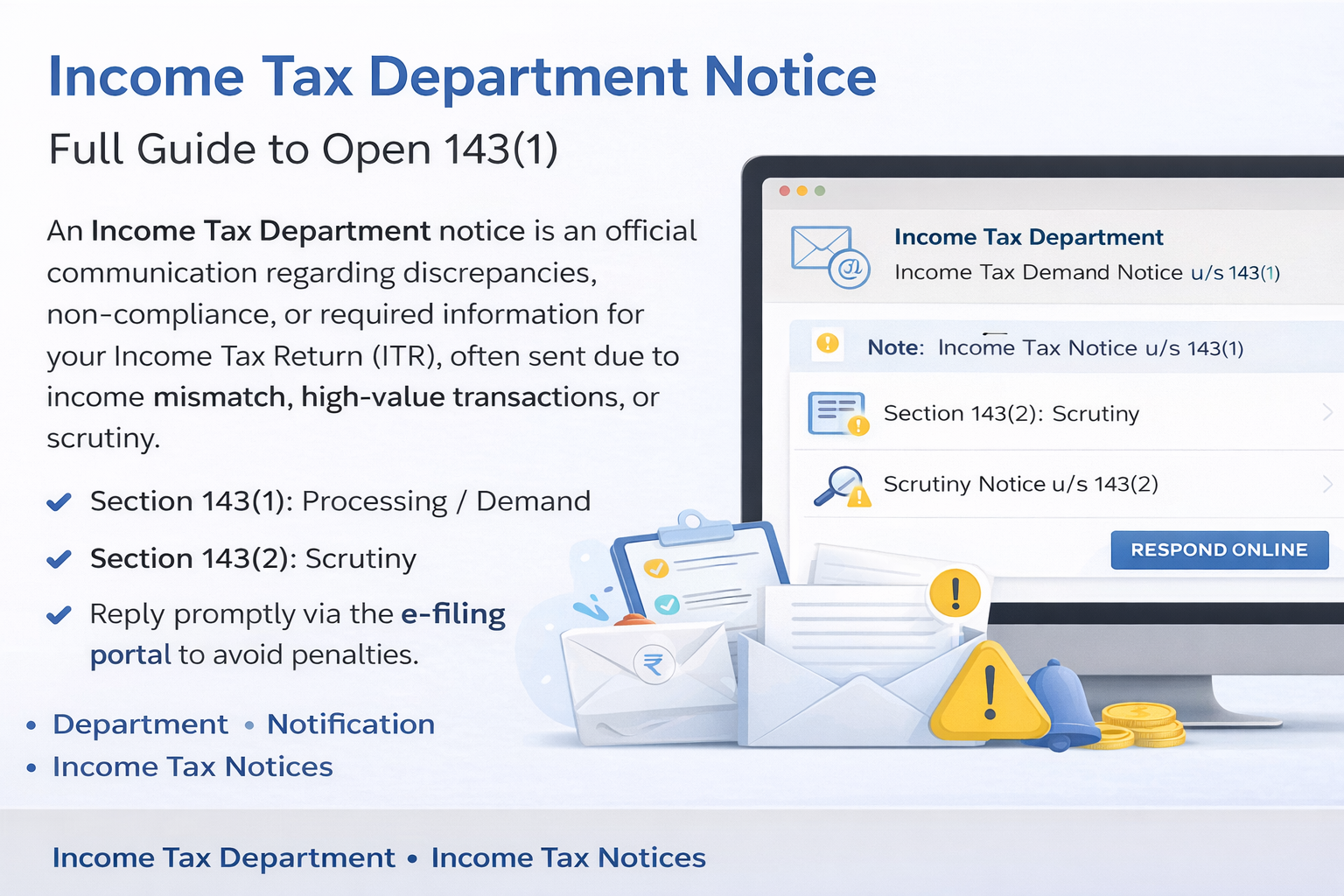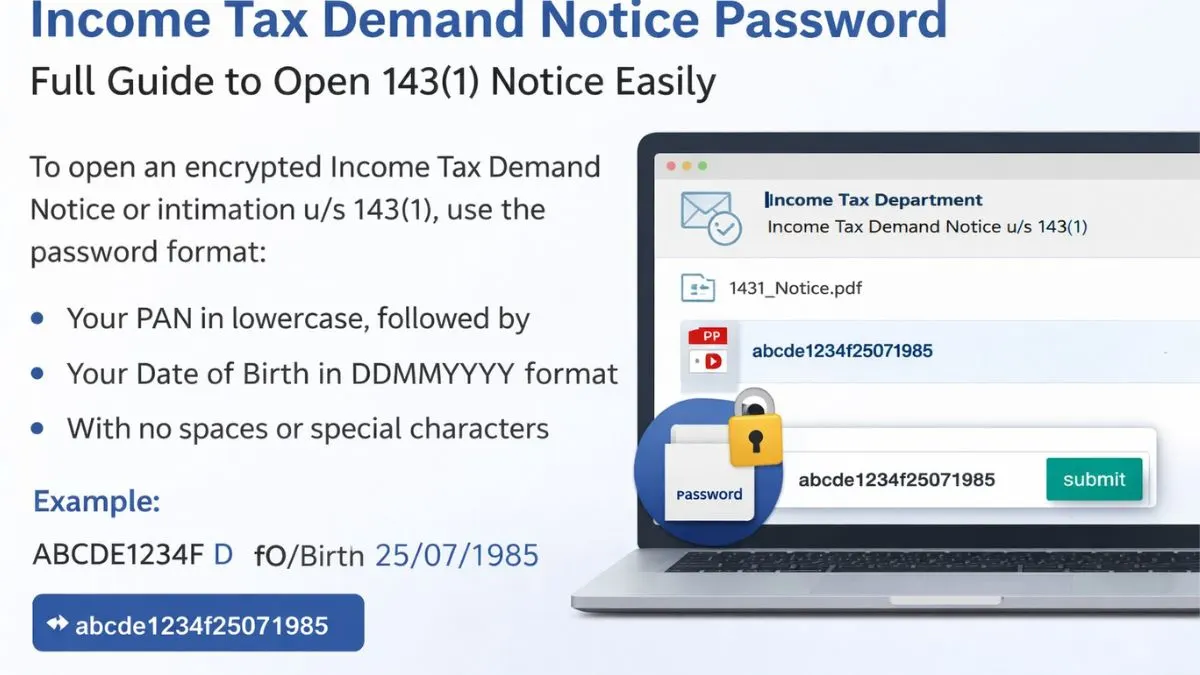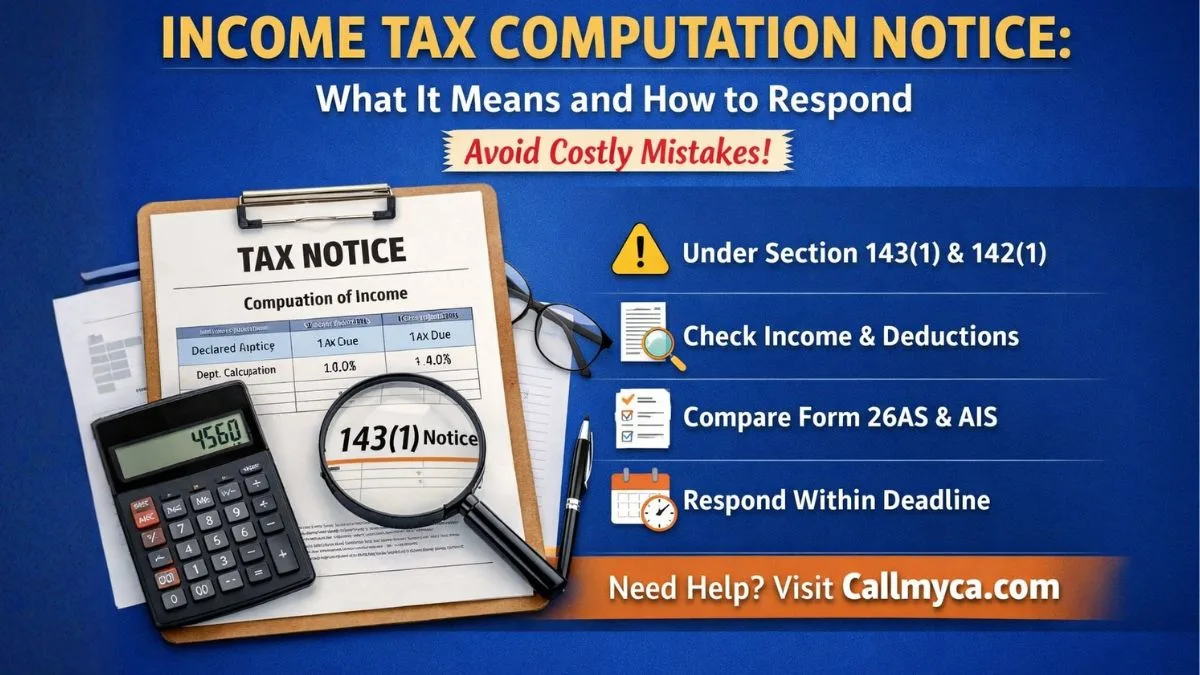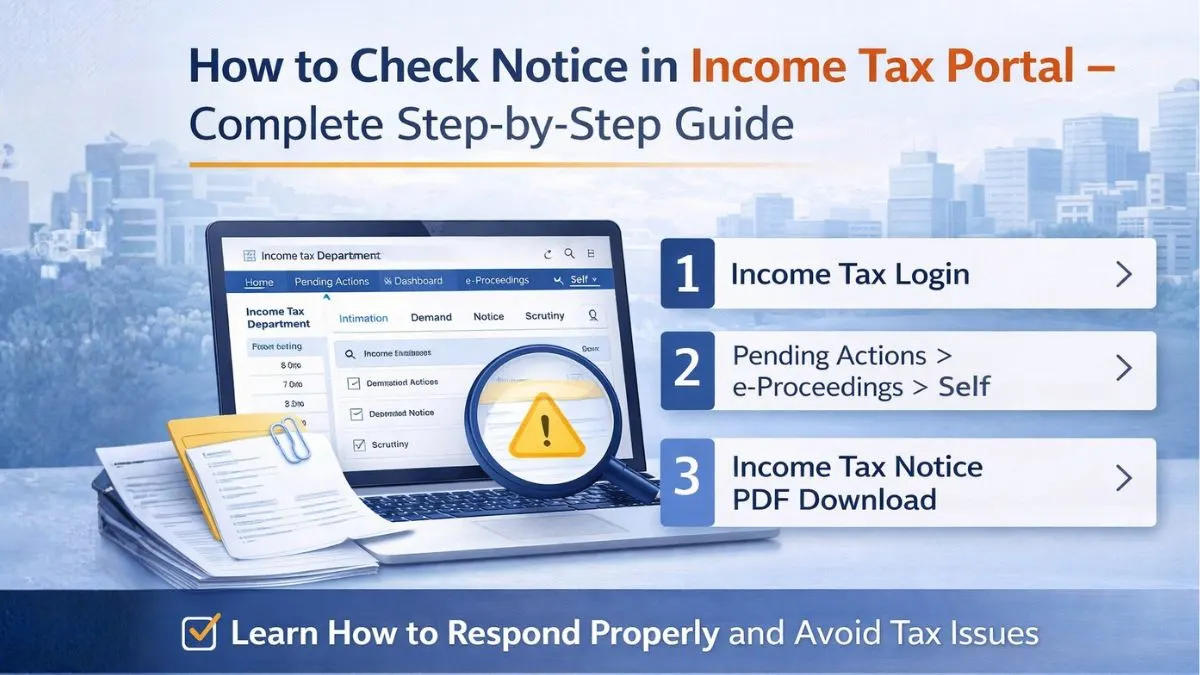
Tax refunds are often viewed as a relief for taxpayers, but what happens when the Income Tax Department mistakenly grants a higher refund than what is actually due? To address such situations, the legislature introduced Section 234D of Income Tax Act. This section levies interest on excess refund granted to taxpayers & ensures that the government recovers its dues fairly.
The provision may sound harsh, but it is rooted in financial discipline. If taxpayers are entitled to interest on delayed refunds, it is only fair that the government charges interest on refunds that were wrongly paid in excess.
What is Section 234D of Income Tax Act?
Section 234D of Income Tax Act specifically deals with the recovery of interest on excess refund. When an assessee receives a refund during the assessment process that turns out to be higher than what was actually due, the Income Tax Department has the right to recover the excess along with interest.
In simple words, if the government pays you more than you were entitled to, you not only have to return the excess amount but also pay interest on excess refund at a prescribed rate."
Rate of Interest Under Section 234D
The law prescribes a clear rate of interest:
- The rate of interest under Section 234D is levied at 0.5% per month.
- This means that the assessee shall be liable to pay simple interest at the rate of one-half per cent for every month or part of a month until the excess refund is repaid.
For example, if a taxpayer receives an excess refund of ₹1,00,000 and it remains unpaid for 5 months, the liability would be:
₹1,00,000 × 0.5% × 5 = ₹2,500 as interest.
Also Read: Interest on Default in Advance Tax Instalments
Why Was Section 234D Introduced?
Before the introduction of this section, the Income Tax Department struggled with situations where refunds were wrongly credited due to mistakes in processing. Recovering such refunds became a challenge, and there was no penalty for taxpayers who had benefited from these excess amounts.
Hence, Section 234D provides for levy of interest on excess income tax refund, ensuring that:
- Taxpayers cannot enjoy undue financial benefits.
- The department recovers both the principal & interest.
- The system maintains fairness – just as taxpayers earn interest on delayed refunds, the department earns interest on excess payments.
Scope of Section 234D
The section applies in the following cases:
- Excess Refund Granted – When a refund issued under Section 143(1) exceeds the refund determined during regular assessment.
- Refund Wrongly Granted – Where a refund is allowed due to errors in assessment that later get corrected.
- Delay in Advance Tax Payments – It also indirectly deals with the consequences of delayed payment of advance tax, since wrong computations often arise from underpayment or late payment of advance tax.
Consequences for Taxpayers
If you are a taxpayer who has received excess refunds, the consequences under Section 234D are:
- Repayment of the excess amount.
- Interest on excess refund at 0.5% per month, calculated from the date of refund to the date of repayment or adjustment.
- Additional scrutiny of returns & possible notices from the Assessing Officer.
Also Read: Section 234F of the Income Tax Act – Late Filing Fee That Could Cost You!
Example to Understand Section 234D
Let’s say a taxpayer files a return & is granted a refund of ₹50,000 based on preliminary assessment. Later, during detailed assessment, it is found that the actual refund due was only ₹30,000.
- Excess refund granted = ₹20,000
- Interest rate = 0.5% per month
- Suppose the correction happens after 10 months.
Interest payable = ₹20,000 × 0.5% × 10 = ₹1,000
So, the taxpayer will repay ₹20,000 (excess refund) ₹1,000 (interest) = ₹21,000."
Section 234D vs Other Interest Sections
The Income Tax Act has multiple sections dealing with interest:
- Section 234A – Delay in filing return.
- Section 234B – Delay or shortfall in payment of advance tax.
- Section 234C – Deferment of advance tax installments.
- Section 234D – Interest on excess refund.
Together, they ensure that both taxpayers and the government remain accountable for delays, errors, or undue benefits.
Practical Implications of Section 234D
For ordinary taxpayers, this section acts as a reminder to file accurate returns & declare income truthfully. Here are the practical implications:
- Accuracy is Key – Incorrect returns can lead to wrong refunds and trigger liability under Section 234D.
- Impact on Cash Flow – Excess refunds received may have already been spent, but repayment with interest can create financial strain.
- Audit Trail – Refund mismatches often raise red flags during audits or assessments.
- Awareness – Taxpayers must understand that the assessee shall be liable to pay simple interest at the rate of one-half per cent if undue refunds are credited.
Common Misconceptions
- “It’s the department’s fault, not mine.”
While excess refunds may result from departmental errors, Section 234D clearly places responsibility on the taxpayer to repay with interest. - “Interest won’t apply if I didn’t know.”
Awareness is not a defense. The law imposes liability automatically. - “I can delay repayment.”
The longer you delay, the more interest accrues – at 0.5% per month.
Also Read: The Interest Penalty That Silently Drains Your Refund
Conclusion
Section 234D of Income Tax Act is a balancing provision. While taxpayers are rightly entitled to interest on delayed refunds, the government also deserves to recover its dues with interest when refunds are wrongly granted. The law levies interest on excess refund at 0.5% per month, & provides for levy of interest on excess income tax refund until the excess is repaid."
It also indirectly deals with the consequences of delayed payment of advance tax, since such errors often arise from underpayment of tax dues. Therefore, taxpayers must ensure accurate filing, timely payments, and careful verification of refunds.
👉 If you have received a notice under Section 234D or are unsure about refund adjustments, visit Callmyca.com. Our experts simplify tax compliance, help you resolve refund mismatches, and guide you in avoiding penalties.

